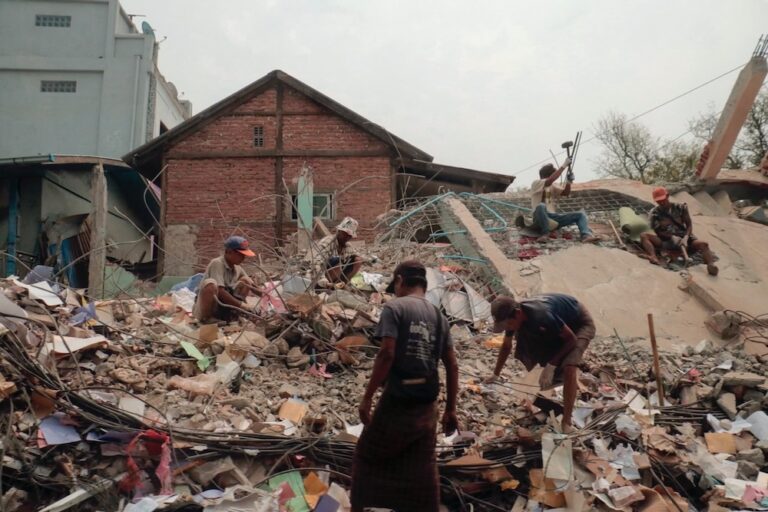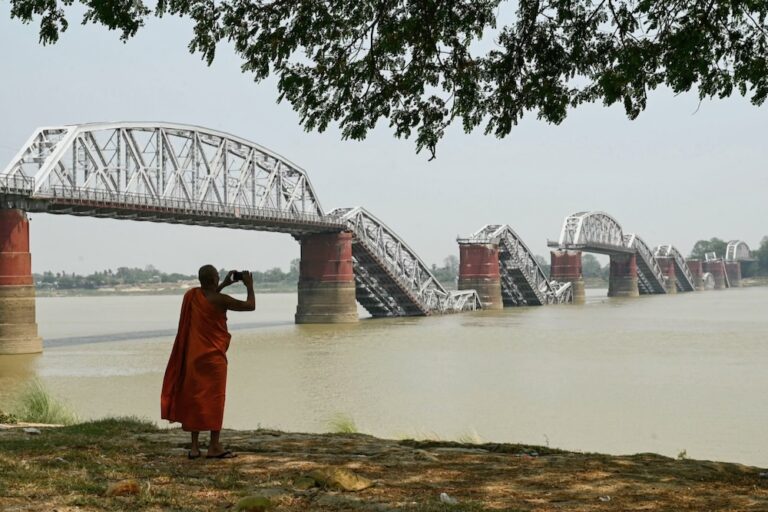The media community in Burma, international groups and observers are abuzz with criticism towards and protest against the draft Printers and Publishing Enterprise Law (PPEL).
UPDATE from Mizzima News: Myanmar publishers hope new bill offers them protection (5 July 2013)
(SEAPA/IFEX) – The media community in Myanmar, international groups and observers are abuzz with criticism towards and protest against the Ministry of Information’s (MOI) draft Printers and Publishing Enterprise Law (PPEL) submitted to Parliament recently. And rightfully so.
The PPEL bill ensures government’s continued grip on the print media through licensing controls, which represent a renewal of the old 1962 Printers and Publications Act (PPA). Furthermore, the MOI’s lack of transparency surrounding the process points to a regime still unwilling to embrace media freedom in its fullest sense.
The bill is being introduced by the MOI for the ostensibly benign purpose of establishing rules for conducting such businesses. Apart from the PPEL, bills to regulate the broadcast and online media are also on the agenda of the government.
There are three problems in the current situation. The first involves the secrecy surrounding the drafting of PPEL drafted by the ministry, which was submitted to Parliament to the surprise of the media community. The old law that was abolished in January this year had been one of the major challenges to the media community and the citizens’ right to know in the past. Reintroducing the law under a pretext of reform will definitely not win the MOI more friends. And to do it without any consultation with the local media community and civil society groups shows the government’s intention of bulldozing back into the political agenda a law to control the media.
Secondly, by pushing through this draft law, the MOI seems to be undercutting the Interim Press Council (IPC) it formed in September last year and which was tasked, among others, to work on a draft media law and develop the foundations for a media council. It appears that the IPC is merely a diversion for the media community, while the MOI aimed at regulating the foundations of the media industry with continued control of registration of the print, online and broadcasting media. It is commendable – and not unexpected – that the IPC, as well as the Myanmar Journalists Association and the Myanmar Journalists Network, have issued strong statements rejecting the PPEL. Clearly, these groups should have been brought into the process and allowed to make their recommendations.
The third problem is in relation to the provisions in the draft law itself, which will fundamentally contradict and negate the spirit of building a free media and the anticipated openings in the media landscape. Conflicting previous actions, the PPEL will override any further action to promote a free media by strictly regulating the establishment of private printing and media, and setting limits the contents they can publish. This is in blatant disregard of international and even ASEAN standards on the right to freedom of opinion and expression.
While the new draft law imposes less serious penalties for violations than the defunct PPA, it still maintains the regulatory and licensing regime that has restricted both printed news media and private publishing in Myanmar for almost 50 years. The draft law proposes to penalize illegal or unlicensed publishing with a fine of three million kyats (equivalent to USD3,500) or six months of imprisonment.
More ominously, the law defines several off-limits topics – including incitement to religious and racial hatred, immoral and sexual matters, agitation to violence, promoting criminality, and opposing the constitution and existing laws – which publications are expected to comply with or risk suspension of their license, payment of a fine or three months of imprisonment.
By specifying this list of taboo topics, the draft law seems to go beyond the PPA in spelling out what can and cannot be published in Myanmar. While the previous law, in not defining what is illegal, was criticised for being subjective and arbitrary, the list of banned topics in the new draft does not represent a step forward, being still quite broad. Any write-up on these topics can be maliciously interpreted to include topics that fall within the scope of journalism, political and social commentary or activism.
The intent behind the law to maintain a censorship regime is bolstered by the recent revelation of a government body established to monitor the publications of local journals. The Central Supervisory Committee for Registration and Distribution of Printers and Publishers, which is composed of representatives of security agencies and regulatory bodies and formed on 23 January, in fact preempts the draft bill by taking on monitoring functions not yet defined by law.
It would do well for the government, particularly the Ministry of Information, to stop the discussion of these draft laws until a draft media law or a legal framework is established to protect journalists and guarantee media freedom. At the very least the government should exclude any content-based restriction and licensing in the drafts of media industry laws being submitted to Parliament. Priority should be placed on ensuring fair competition among prospective stakeholders in the media business, protecting against the establishment of monopolies or cartels, and laying down rules consistent with media freedom.
Instead of proposing limits to sensitive topics, what is more urgent is for the government to broaden the discussions of the drafting of the media law to foster support among journalist communities, especially those outside the capital, in order to promote media freedom and develop self-regulation.
It is also necessary for the other actors in the political sphere, such as the opposition political parties and civil society groups, to claim, as legitimate stakeholders, a role in the process. Aung San Suu Kyi’s National League of Democracy, fresh out of its first national congress over the weekend, has yet to indicate its policy or plans for the promotion of media freedom in the country. The wider community cannot let this be an issue only for the media and the MOI to deal with.
The media, for its part, needs to form a stronger coalition to agree on the fundamental needs and principles for a free and fair media environment in the country. It should be able to go beyond responding to government initiatives and begin to set its own agenda and build a more united voice for the media stakeholders and the public.


